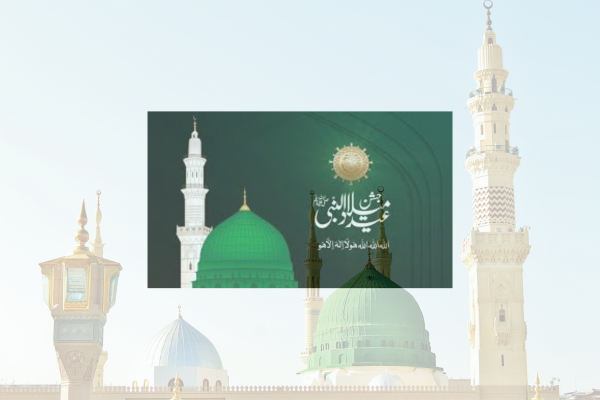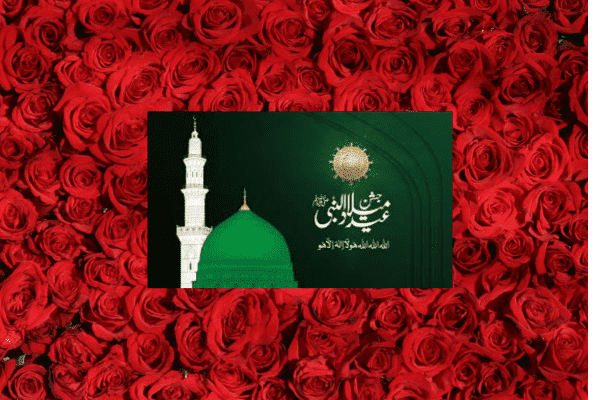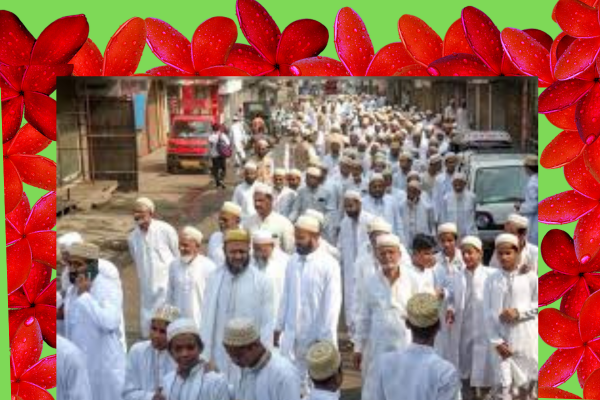Sahar Ka Waqt Tha | Full with Lyrics | Qaseeda Burda Sharif | Mahmood Ul Hassan Ashrafi

Gali Gali Saj Gayi Part 2 – Rabi Ul Awal Milad Naat 2024 – Official Video – Hafiz Tahir Qadri
The Islamic holiday of 12 Rabi ul Awwal, also called Eid Milad-un-Nabi, commemorates the day of the Prophet Muhammad’s (peace be upon him) birth. This day is marked with great reverence and devotion by Muslims worldwide, who regard it as sacrosanct. In the Islamic lunar calendar, it occurs on the twelfth day of Rabi ul Awwal, the third month. Let’s examine the significance of this day, its foundation in history, and its global celebrations.

Meaning of the 12th of Rabi ul Awwal
12 Rabi ul Awwal is a very significant person in Islamic tradition. On this day in 570 AD, it is said that the Prophet Muhammad (PBUH) was born in Mecca. Since the Prophet is regarded as Allah’s last messenger and brought the last revelation from the Almighty, the Holy Quran, his birth is viewed as a blessing to humanity.

Raza Saqib Mustafai || First Rabi ul Awal Bayan Saqib Raza Mustafai
Muslims use this day to show their love and devotion to the Prophet, think back on his lessons, and make an effort to live up to his example. It also acts as a reminder of the moral principles that the Prophet upheld throughout his life, including kindness, justice, humility, and compassion.

The Origins of Eid Milad-un-Nabi in History
Early Islamic history is the source of Eid Milad-un-Nabi, observed on 12 Rabi ul Awwal. The Fatimids in Egypt in the tenth century started the custom of celebrating the birth of the Prophet, but it eventually spread to other Muslim nations. The festival had extended to areas like Syria, Iraq, and the Indian subcontinent by the 12th century.

At first, religious ceremonies, poetry recitals honouring the Prophet, and altruistic deeds were performed on this day. The celebrations changed over time, but the basic goal of commemorating the life and teachings of the Prophet Muhammad never changed.

How the World Celebrates 12 Rabi ul Awwal

There are wide variations in 12 Rabi ul Awwal observance among cultures and geographical areas. The following are some customs that Muslims throughout the world often follow:
- Gatherings and Processions
Muslims assemble in cities and towns around the world for processions where they sing songs (Nasheeds) and poetry (Naats) in honour of the Prophet Muhammad (PBUH). Since green is seen to be the colour connected with Islam and the Prophet, green flags are frequently flown in conjunction with these processions. - Adorning Homes and Mosques
- Mosques and residences are frequently festooned with vibrant lights and banners featuring peaceful messages and Islamic calligraphy. This deed represents the happiness and respect Muslims experience on the Prophet’s birthday.
- Particular Invocations and Chants
To ask for blessings and peace for everyone, mosques hold special prayers called as salat and recite passages from the Quran. Speaking about the life and teachings of the Prophet, academics and religious authorities emphasise how his message is still relevant today. - Charitable Deeds
A big component of the celebration is charity. Muslims are urged to contribute to the underprivileged in order to uphold the compassion and charity taught by the Prophet. Langars, or free meals, are frequently served at mosques and public Instructional Courses and Workshops
The life of the Prophet, his contributions to mankind, and the lessons to be learnt from his teachings are the subjects of numerous educational programmes, seminars, and conferences held by Islamic centres and organisations. These gatherings provide an opportunity to explain the significance of the day to both Muslims and non-Muslims. - Abstinence
On Rabi ul Awwal 12, some Muslims decide to fast because they see it as a way to honour the Prophet. Although it is not required, fasting on this day is said to be a means of spiritual purification. - The Peace and Unity Message
- The celebration of Eid Milad-un-Nabi serves as a reminder of the Prophet Muhammad’s (PBUH) lifelong message of peace, tolerance, and togetherness. Muslims should use this time to consider their own behaviour and make an effort to live up to the principles that the Prophet advocated. In addition, the day promotes unity amongst individuals of various religious and cultural backgrounds by highlighting the significance of interfaith communication and understanding.
- Disputations Regarding the Festivity
- While many Muslim communities commemorate 12 Rabi ul Awwal, certain Islamic scholars and sects feel that it shouldn’t be observed as a holiday.There is no explicit reference to the Prophet’s birthday celebration in the Quran or Hadith, hence it cannot be considered an Islamic holiday. Some regard it as an invention (Bid’ah) that departs from the traditional Islamic customs.
- Supporters of the festival counter that remembering the life and teachings of the Prophet is an act of love and devotion, which is encouraged in Islam. Notwithstanding these variations, the day is nonetheless widely recognised and commemorated.
- In summary
- 12 Rabi ul Awwal, also known as Eid Milad-un-Nabi, is a day that encourages Muslims to reaffirm their faith rather than merely being a day in the Islamic calendar.their religion and consider the enduring lessons imparted by the Prophet Muhammad (PBUH). The fundamental principles of love, peace, and devotion never change, despite cultural differences. Muslims everywhere may come together in their mutual respect for the Prophet by realising the significance of this day, which will promote harmony and a feeling of togetherness.
- May everyone experience blessings, happiness, and tranquilly on this 12 Rabi ul Awwal, and may the Prophet’s teachings never cease to uplift and direct us in our day-to-day activities
